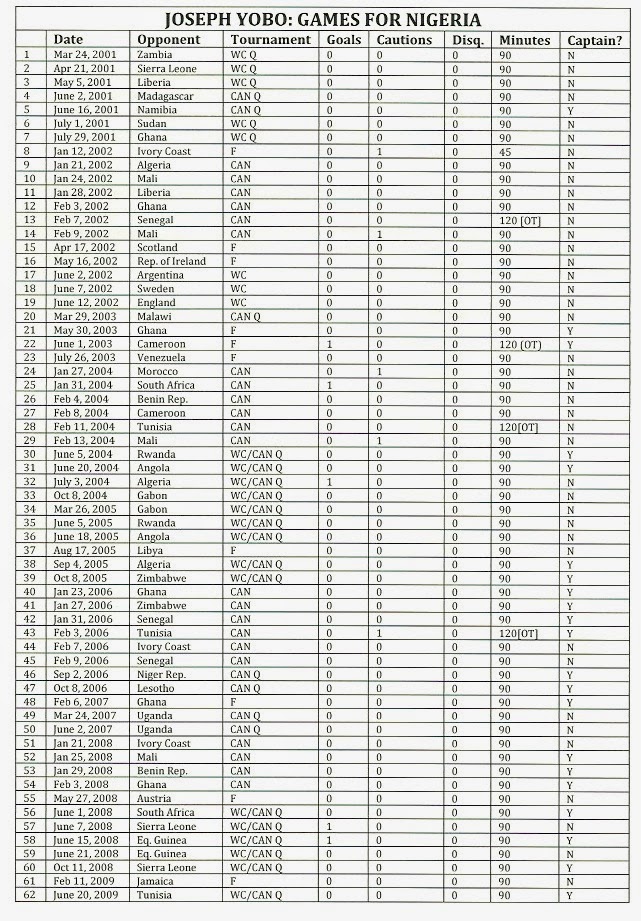Unspoken Test of Rohr's Nigerian Team against the Leone Stars
When Nigeria lines up for two AFCON qualifiers against Sierra Leone late this month it will mark an unspoken test for Nigeria. Nigeria's team, since a disappointing World Cup two years ago, has been rebuilt into a team that most Nigerians feel may be the best in quite some time. The squad has interchangeable players and no one player can be designated a star that the team depends on to thrive. But yet it is also a vastly different squad from any in the country's history. In 70 years of international football, Nigeria has never featured a squad that is so dependent on players with dual citizenship, many born outside Africa. That very characteristic is claimed to be the biggest asset of this team. The fans believe that players bred in Nigeria lack appropriate football education required to compete with the best in the world. But the rough and tumble of African soccer may well challenge that claim and that is where the Sierra Leonians step up.
African soccer is not, at times, for a faint heart. While elsewhere balls may be denied by closing down spaces and channels in unison, in the continent a ball may be denied by going through the ball carrier with the referee going mute. The physicality is something that has to be learned and adaptation is required. It is a different type of football education. The football field may not always be manicured perfectly and the ball may bounce oddly. Only the adeptly skilled can maneuver on some of the surfaces in the continent and those skills are learned on the streets and fields that aren't exactly perfect. Then there is a psychological strength that is required to achieve a measure of consistency in the face of a different style of balling. The likes of Ebuehi, Iwobi, and Aina have clearly stories to tell about their initial starts for Nigeria and the challenges. The African arena presents a football education that isn't easily grasped in a European academy. If you cannot adapt to it, if you cannot re-learn some of the other European football education, and if you cannot man-up in the continental African style then the results may be bleak.
To conquer the world, the amped Nigerians must first demonstrate that they can easily dispatch the likes of Sierra Leone who are not ranked among Africa's best. The gap between Nigeria and Sierra Leone was marked by a 4-1 trouncing meted out to the Leone Stars by Nigeria in October 2008 when both countries met in the most recent competitive game. But that was eons ago when just one of 14 players who played that evening in Abuja was bred outside the country. This March, the starting team is likely to feature no less than four such players and it could easily be five or six and, perhaps, a further two among the initial substitutes called to play. It is a sea change in picking Nigeria's representatives for senior internationals.
Sierra Leone is obviously considered a weak opponent. After all, they are ranked #118 in the world and #30 among African footballing countries whereas Nigeria is #31 and #3 respectively. Sierra Leone's most recent results have been quite poor and it is a team that last appeared in the AFCON in 1996, two decades ago and still counting. Just a few months ago, they were held 1-1 at home by a Lesotho team that Nigeria devoured. Yet, in spite of these stark realities, Sierra Leone has a team that matches Nigeria in terms of foreign-based internationals. Although the pedigree of the foreign clubs differ. While several Leone Stars play in places like Indonesia and Oman, the Nigerian stars are on television playing for clubs in England, France, and Spain.
Recently, calls for inclusion of locally-based Nigerian players have begun to grow louder as the federation intensifies its recruitment of dual citizen players from outside the country. The federation has attempted to shield itself from attacks by publicly stating that the national coach will be made to watch the local leagues and call up local players. This will be included in the coach's yet to be renewed contract. Shockingly, politician Akin Alabi trust himself into the debate tweeting a poll surveying opinion of Nigerians on whether legislation is needed to force inclusion of local players in the national team. Astonishingly, 41% of 15,039 votes stated "Yes, it is a great idea" and another 19% voted that it was not enough to legislate that only two local players are to be invited. Perhaps, if nothing else, it demonstrates a brewing discontent.
Ultimately, however, the success of this project is not simply going to be based on public disenchantment or media criticisms. It will require much more. That more will come in results obtained against the likes of Sierra Leone and other African teams. It is an unspoken test for the unprecedented strategy for focusing on dual citizens bred outside the continent. After all, a deliberate inclusion of local players, six of them, did not hurt Nigeria in its 2013 AFCON win. With players now designated as having the requisite football education to challenge the world, winning a continental trophy must not be too high a hurdle to overcome. Thus, such a team must convincingly pass the Sierra Leone test this March and then take Nigeria to the 2022 World Cup in Qatar for which qualifiers will commence later this year.


Comments
Post a Comment